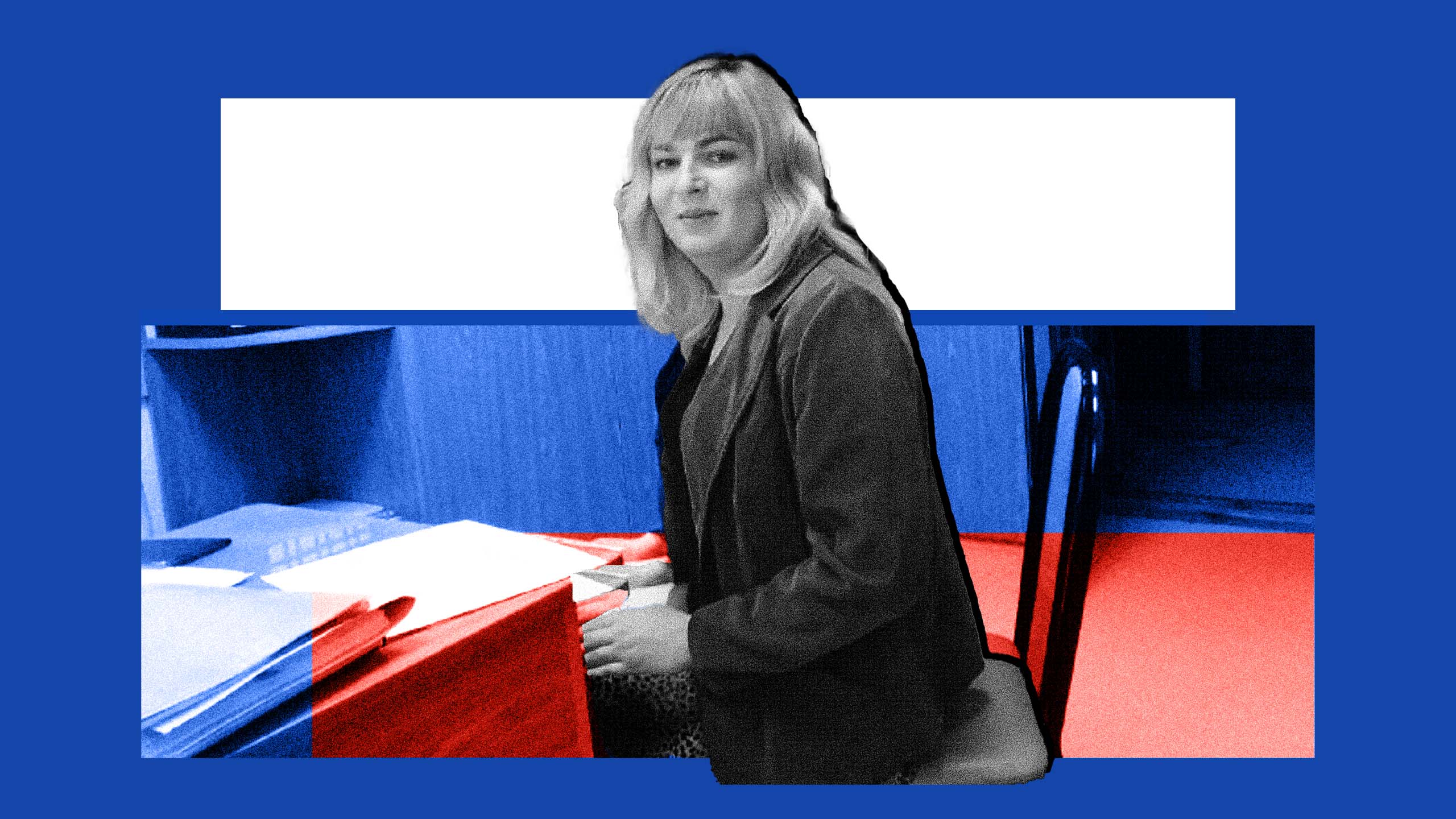As a result of Russia’s move to expand its “LGBT propaganda” law, Russia’s first openly trans politician said that she has found it impossible to be in public office.
Yulia Alyoshina announced last Thursday that she was leaving politics because of the expansion of the country’s ban on “LGBT propaganda” to media or events with audiences of all ages, U.K.-based LGBTQ+ news site PinkNews reported. In a Telegram post, the head of Civic Initiative party’s office in the Altai region said that she wouldn’t know how to continue holding public office with the expansion of the law, which previously only banned “LGBT propaganda” deemed to be targeted at children.
“Today, the State Duma [Russia’s lower house of parliament] adopted in the first reading the bill on banning LGBT propaganda,” Alyoshina wrote. “I have never engaged in such propaganda, but I have no idea how to continue conducting public political activities, being an openly transgender woman.… With the adoption of this new, discriminatory law, more serious opposition can be expected.”
Alyoshina wrote that despite her pride in what she and the rest of her party were able to achieve—including advocating for foreign-made COVID-19 vaccines to enter the Russian market—transphobia had made her time as the head of centre-right Civic Initiative party’s Altai region office, which began in November 2021, difficult. She noted that she had been barred from registering as a political candidate for the Barnaul municipal Duma and prevented from attending parliamentary meetings in her region.
The politician made her announcement the day the State Duma unanimously voted to ban any event, act or piece of media seen to promote homosexuality. Under the new law, citizens could be fined up 400,000 rubles (USD $6,500) for promoting homosexuality, while foreigners found guilty would risk deportation from Russia.
Alexander Khinshtein, one of the bill’s leaders, said in a hearing last week that the law didn’t ban “LGBT as a phenomenon” and only banned “propaganda” (notably, he also called the children’s show Peppa Pig a “tool of hybrid war”). But in practice, the expansion of the law could serve to bar anyone from saying anything positive about LGBTQ+ people. A spokesperson from LGBT Network, a LGBTQ+ advocacy group based in Russia, told Reuters that the law serves to persecute the LGBTQ+ community.
Read more of our stories
- My trans partner is no longer attracted to me or my gender. What should I do?
- Trans youth overwhelmingly continue gender-affirming treatment as adults
- The ‘Gender Reveal’ podcast is back and still giving money to trans folks
- Why does the esteemed author John Irving care so much about queer and trans people?
“They want to ban us not only from talking about ourselves or somehow demonstrating our feelings for our partners, but also to completely erase any mention of us in culture: books, films, media and the like,” they said. “In fact, what is happening is the total state abolition of LGBTQ+.”
The proposed expansion of the law comes as the country continues to wage war against Ukraine. The two events aren’t wholly unrelated: in a September speech announcing that Russia was annexing four regions of Ukraine, Russian president Vladimir Putin railed against the idea “that there are supposedly genders besides women and men.” Bledniy, a gay Russian blogger, told Al Jazeera that the timing of the law was not a coincidence.
“Perhaps this law is now being actively pushed so that we discuss this ‘white noise,’ and not the moral and material losses we, our country, are suffering at this moment,” he said.
The current iteration of the “LGBT propaganda” law—which was instituted in 2013 and only bans “propaganda” seen to target minors—marked an increase in homophobic and transphobic violence in a country where there are currently no anti-discrimination laws for LGBTQ+ people.
Contrary to its stated aims, the law has also harmed LGBTQ+ children. A 2018 report from the Human Rights Watch (HRW) found that the law was used to shut down websites and services that provided resources to LGTBQ+ teens. The law also had a chilling effect on mental health professionals: many interviewed by HRW said that the law interfered with their ability to treat LGBTQ+ youth and provide them with accurate information regarding their health, as they feared breaking the law.
The report also found that LGBTQ+ youth feared being open about their sexual orientation and gender identity, with some facing physical abuse from members of their communities. Many of them said that the “LGBT propaganda” law intensified their fear and sense of isolation, with some youth saying that their teachers had said that queer identities were perverse ideas imported from the West, an idea that also motivates the discriminatory law.
Despite the increasing hostility to LGBTQ+ people in Russia, Alyoshina closed her post by saying that she would focus on transitioning.
“Going into politics, I planned to fight and fought for the rights and freedoms of all citizens, regardless of their nationality, orientation and even political views,” Alyoshina said, to close out her post. “But I guess I was a little ahead of my time.”


 Why you can trust Xtra
Why you can trust Xtra


